Have you ever looked at a word like junction or conjunction and wondered what that little piece “junc” really means? You’re not alone.
Many English learners, students, and even native speakers are curious about the hidden meanings behind word roots.
The root junc pops up in dozens of words, and understanding it can make vocabulary learning feel like decoding a secret language.
Quick Answer:
The root “junc” comes from the Latin word “jungere,” meaning “to join” or “to connect.”
It appears in many English words related to joining, linking, or bringing things together.
🧠 What Does the Root “Junc” Mean?
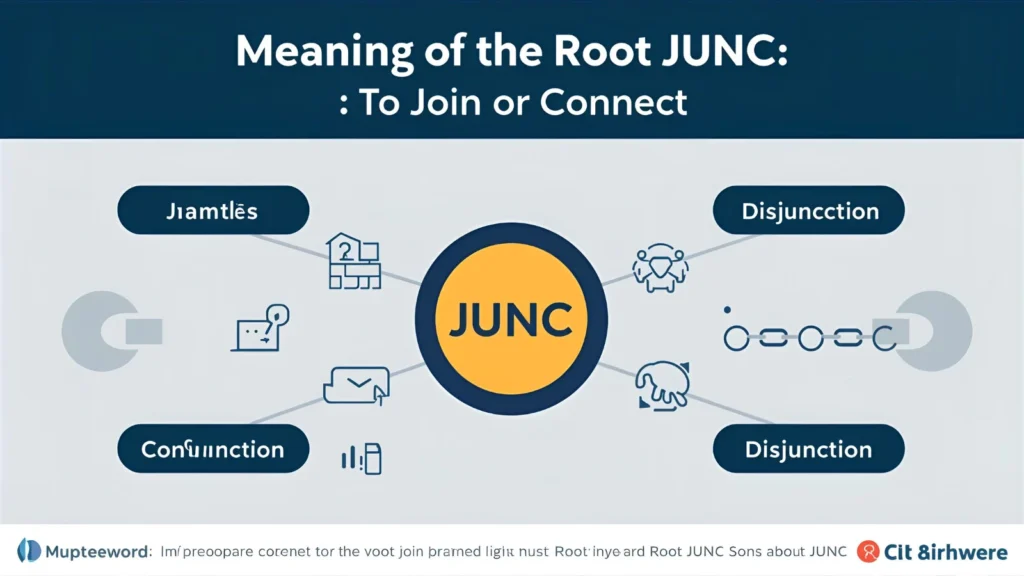
The Latin root “junc” (from jungere) literally means “to join or connect.”
It’s a foundational element in many English words that describe bringing things, people, or ideas together.
Example:
- Junction → A place where roads join or meet.
- Conjunction → A word that connects phrases or sentences.
In short:
👉 Junc = Jungere = To Join or Connect.
When you see the root junc, think of connection, unity, or meeting points.
📚 Origin and Etymology of “Junc”
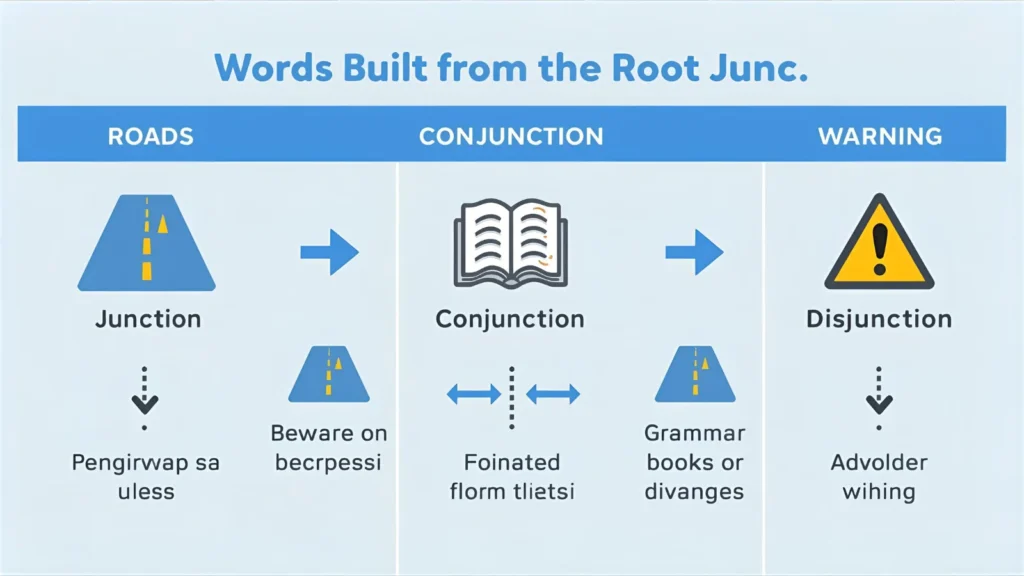
The story of junc starts in ancient Latin. The original root word was “jungere,” pronounced YOON-geh-reh, meaning “to yoke together” or “to bind.”
As Latin evolved into Old French and later English, jungere transformed into forms like junct- and junc- that we still use today.
You’ll often find it combined with prefixes:
- con- (together) → conjunction
- dis- (apart) → disjunction
- ad- (toward) → adjunct
- sub- (under) → subjunctive
Each prefix changes the meaning slightly but keeps the core sense of “joining” intact.
💬 Common English Words with the Root “Junc”
Let’s look at how junc shapes meaning in familiar words:
| Word | Meaning | How It Connects to “Join” |
|---|---|---|
| Junction | A place where roads or tracks meet | Roads join together |
| Conjunction | A connecting word (like and, but, or) | Links ideas in a sentence |
| Disjunction | A separation or lack of connection | Things not joined together |
| Adjunct | Something added or attached | Joined to something larger |
| Injunction | A court order that joins or binds someone to an action | Legal joining or binding |
| Juncture | A point in time when things come together | The joining point |
| Rejoin | To join again | Re = again + join |
| Subjunctive | A verb mood expressing what’s possible | “Joined under” certain conditions |
As you can see, every word that carries junc or junct in it involves some idea of joining, linking, or connection.
📱 Where Is the Root “Junc” Commonly Used?
Unlike slang, the root junc isn’t limited to texting or social media — it appears in academic English, linguistics, and daily vocabulary. You’ll most often encounter it in:
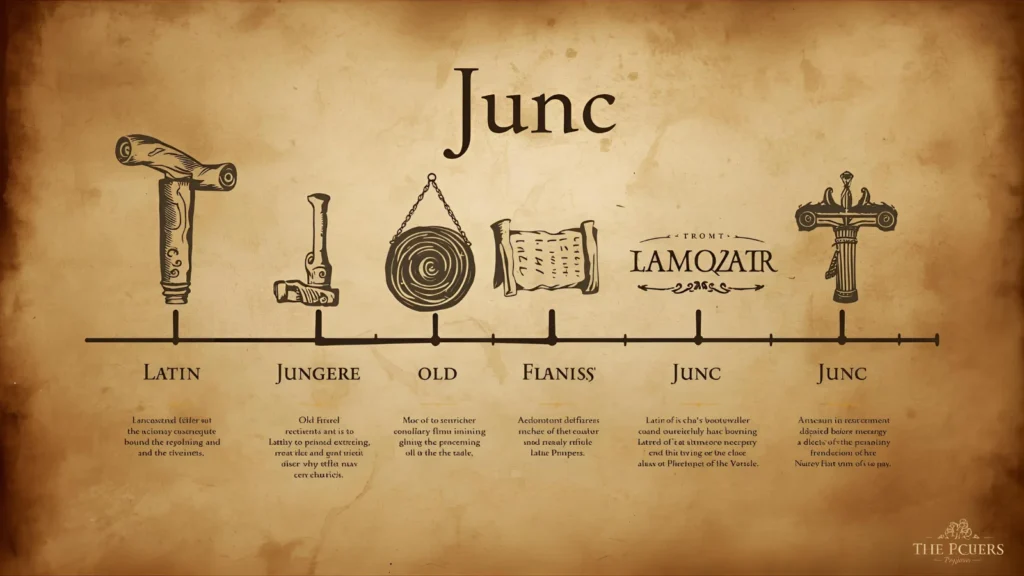
- 🏫 School and college textbooks (especially English and Latin roots lists)
- 📖 Standardized tests like SAT, GRE, or IELTS vocabulary sections
- 💼 Legal and technical terms (like injunction or adjunct professor)
- 💬 Linguistics and grammar topics (e.g., conjunctions)
So, while it’s not something you’ll text your friends, knowing what “junc” means helps you decode and remember dozens of advanced English words.
💡 Examples of “Junc” in Sentences
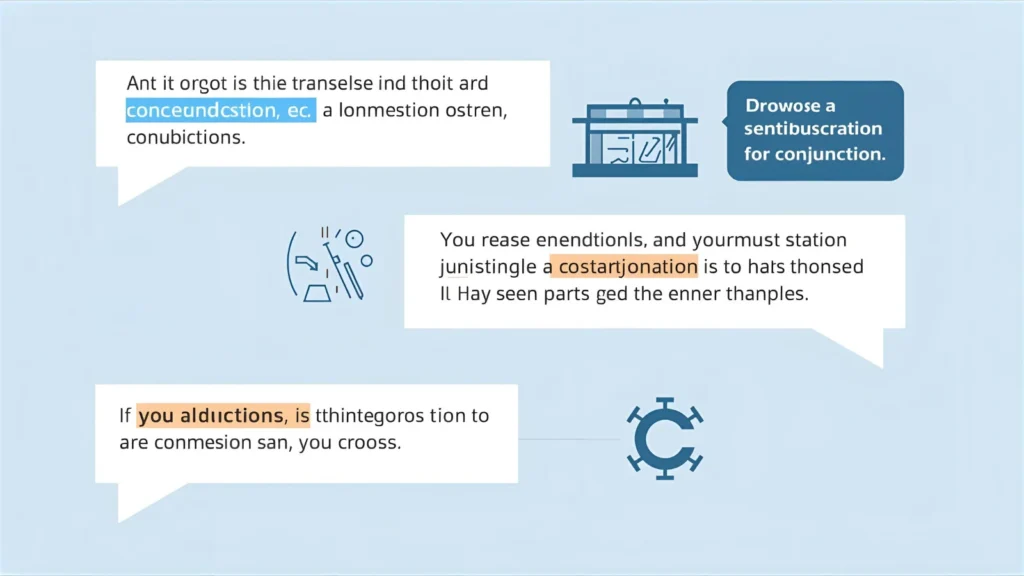
Here are some simple examples that show how junc appears naturally:
- The train junction was crowded with travelers heading in different directions.
- “And,” “but,” and “or” are examples of conjunctions.
- The disjunction between their stories made the truth unclear.
- As an adjunct professor, she teaches part-time at the university.
- The court issued an injunction against the company.
- At this juncture, we need to decide whether to continue or stop.
- He plans to rejoin his old team next season.
Each of these examples reinforces the meaning: something is being joined, connected, or brought together.
🕓 When to Use and When Not to Use “Junc” Words
Knowing when to use words based on junc depends on your context:
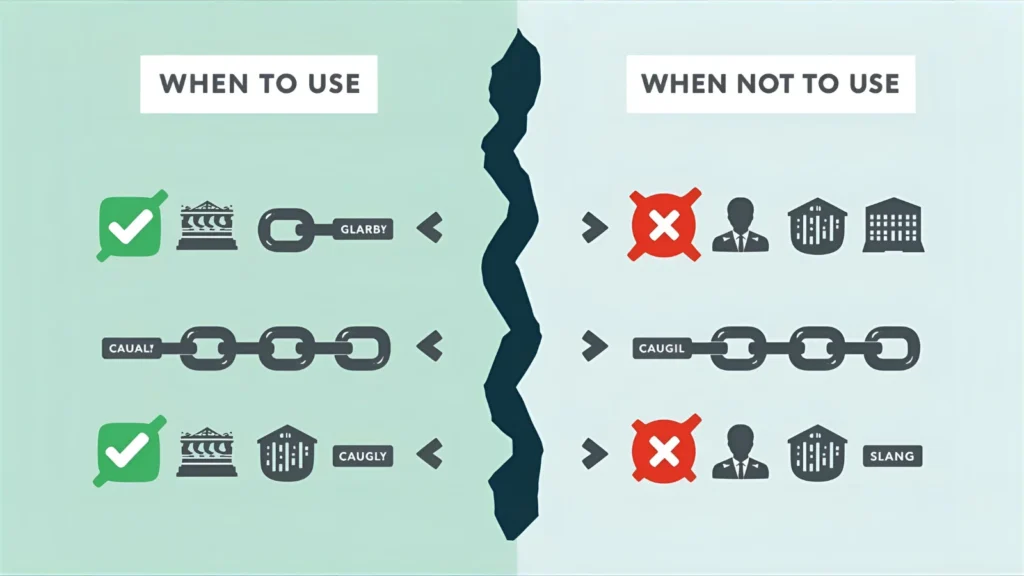
✅ When to Use:
- When describing connection or union (roads, people, ideas).
- In formal writing or speech.
- In academic or legal settings.
❌ When Not to Use:
- When you mean physical “joining” without nuance (use connect or attach instead).
- In casual speech where simpler words fit better.
Comparison Table
| Context | Example Phrase | Why It Works |
|---|---|---|
| Education | “A conjunction joins two ideas.” | Clear academic definition |
| Legal | “The judge issued an injunction.” | Formal and precise |
| Conversation | “Let’s meet at the junction.” | Everyday use, simple and natural |
| Creative Writing | “Their lives met at a strange juncture.” | Metaphorical and expressive |
🔄 Similar Root Words or Alternatives
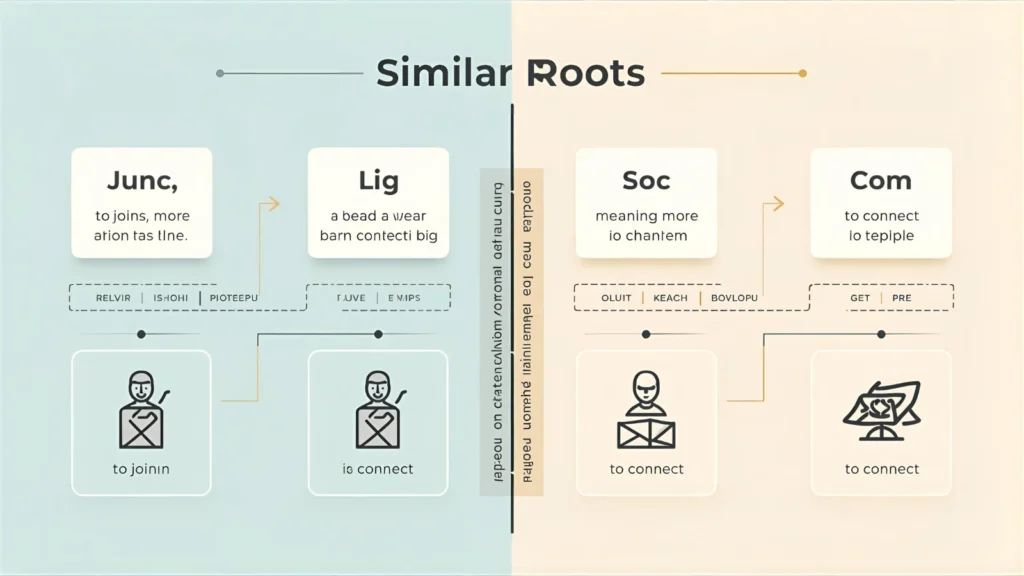
The root junc belongs to a family of Latin roots related to joining and connecting.
Here are some similar ones you might find useful:
| Root | Meaning | Example Word | When to Use |
|---|---|---|---|
| Junct | To join | Conjunction | Grammar and writing |
| Lia / Lig | To tie or bind | Obligation, Religion | When referring to emotional or moral ties |
| Soc / Soci | Companion, ally | Society, Social | When talking about relationships and groups |
| Nex / Nect | To bind or connect | Connection, Annex | For linking physical or digital things |
| Com / Co | Together | Combine, Cooperate | When emphasizing teamwork or unity |
All these roots share the idea of connection or togetherness, which is the essence of junc.
❓ FAQs About the Root “Junc”
1. What does the root “junc” mean in English?
The root “junc” means “to join or connect.” It comes from the Latin jungere.
2. What are some examples of words with “junc”?
Words like junction, conjunction, disjunction, adjunct, juncture, and injunction all come from this root.
3. Is “junc” still used as a standalone word?
No, it’s a bound morpheme, which means it doesn’t stand alone but appears in other words.
4. What is the Latin root of “junc”?
It’s derived from “jungere” (to join), which gave rise to junctus (joined).
5. How can knowing “junc” help with English vocabulary?
Understanding root words like junc helps decode complex vocabulary, improves reading comprehension, and boosts performance on exams like the SAT or GRE.
🧩 Key Takeaway
The Latin root “junc” means “to join or connect.”
It’s found in words that describe unity, attachment, and linking.
By recognizing junc in words like junction, conjunction, or adjunct, you can instantly guess their meanings — even if you’ve never seen them before.
Learning word roots is like learning the DNA of English — once you know one, dozens of new words suddenly make sense. The next time you see junc or junct, remember: it’s all about joining together.

Robat Hood is a creative writer and contributor at Saypadia, focused on explaining trending words, slang, and cultural phrases in a simple and engaging way. With a sharp eye for modern language trends, Robat aims to make Saypadia a trusted place for understanding how words are used online and in daily conversations. His content is informative, approachable, and designed for readers of all levels.




